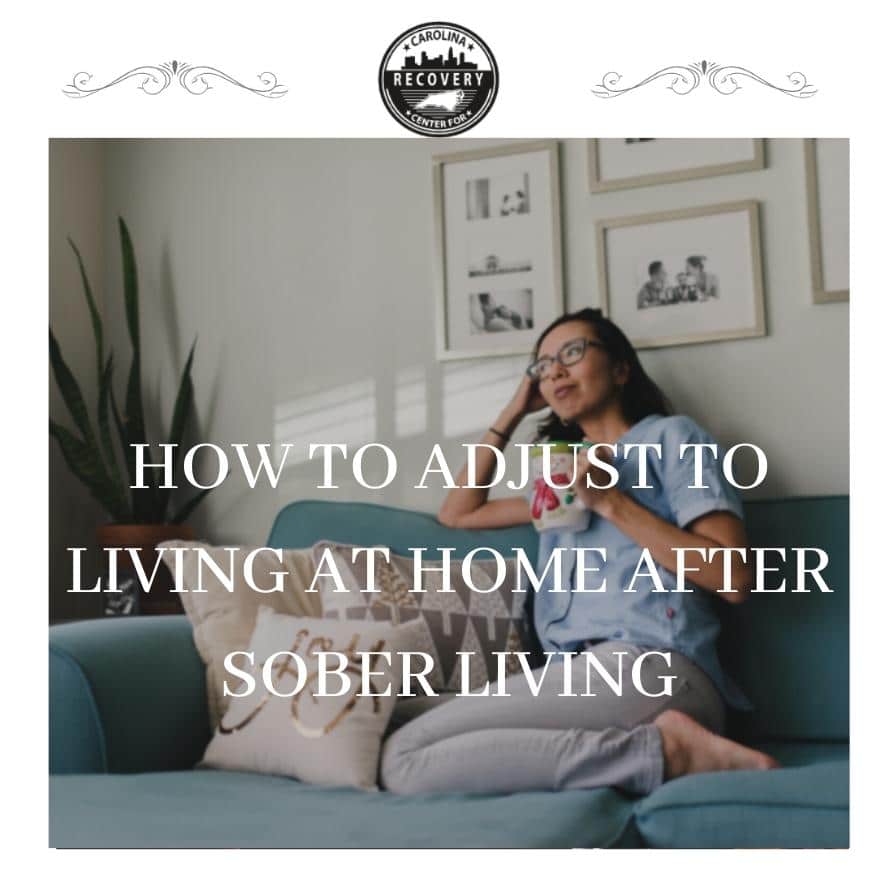How to Adjust to Living At Home After Sober Living

Medically Verified: 2/1/24
Medical Reviewer
Chief Editor

All of the information on this page has been reviewed and verified by a certified addiction professional.
Sober living homes exist to provide you with safe, supportive, and sober housing after you leave rehab. While in sober living, you are held to a high standard. You must stay sober, pass random drug tests, keep your room clean, and get home every night by curfew. All of these rules and expectations exist to hold you accountable and keep you on the right track.
When it comes time to leave sober living, however, it is important that you are prepared for the transition from sober living to your own home. You already know that transitioning from inpatient rehab to sober living can be challenging, but leaving this type of structured environment can be even more difficult.
Whether you’ve stayed in a North Carolina sober home for six months or two years, change isn’t always easy. Here are some tips to help you adjust to living at home after sober living.
The Transition From Sober Living To Your Home
When you move out of sober living and return to your home or get a new apartment, a lot of things will change. You won’t have a live-in house manager that is keeping tabs on you, a nightly curfew to be home by, or regular drug tests that you need to pass. In other words, you don’t have as many resources immediately around you to hold you accountable for your sobriety. Instead, you are in charge.
Whether you attend your meetings and call your sponsor is up to you. You have already gone to rehab and learned coping skills and have built a sober support network, so this is the time when you need to use those resources. Three of the most important things you can do to prevent relapse and have a successful transition out of sober living are:
- Stick to your regular daily schedule to the best of your ability
- Don’t stop attending your 12-Step or recovery-focused meetings
- Stay connected with your loved ones and sober support network
When you take these three steps, you will hold yourself accountable and begin taking responsibility for your individual recovery. Here is how each of these three steps can help you adjust to living at home after sober living.
Maintain Your Usual Schedule
Sober living homes encourage you to develop a schedule that works for you. Your schedule may involve:
- Waking up at the same time every day
- Eating a balanced breakfast
- Working out, meditating, or taking time for yourself
- Going to work
- Relaxing after work
- Doing chores/cooking
- Going to a 12-Step meeting
- Going to sleep at a decent hour
While everyone’s schedule will look different, it is important to stick to your schedule to the best of your ability after you leave sober living. Sticking to your schedule will help you sustain a sense of normalcy in your life. It will help you maintain a routine while you transition to independent living.
Continue Going To Your Recovery Meetings
Whether you are a member of Alcoholics Anonymous (AA), Narcotics Anonymous (NA), or participate in an alternative form of recovery like SMART or LifeRing, your meetings should be an integral part of your regular routine. Meetings are what will hold you accountable, provide you with support, and help you stay sober after rehab.
One of the best ways to adjust to living at home after sober living is to continue going to your recovery meetings. Stopping attending meetings is often one of the first warning signs of relapse. And, not attending meetings plus a major life change is the perfect recipe for disaster.
Stay in Contact With Your Sober Support Network
Throughout your recovery, it is crucial to maintain a network of sober support. Your sober support network may consist of family members who support your recovery, life-long friends, and other sober individuals whom you fellowship with at your recovery meetings. Other people in your sober support network may include your former housemates or peers from rehab.
Regularly connecting with other sober people will help you stay accountable for your personal recovery. It will also give you opportunities to develop meaningful relationships that fulfill your life and help you stay sober. Isolation is another warning sign of relapse, and it is something addicts and alcoholics love to do. However, isolation isn’t healthy – especially when you are going through major life changes such as moving out of sober living.
Start Your Recovery Today
Recovery is a life-long journey, and it most certainly doesn’t happen overnight. There will be several steps to treatment and many adjustments you will have to make in the early months and years of your recovery. One of your biggest challenges may very well be adjusting to living by yourself again, but there’s no reason why you can’t succeed.
Here at Carolina Center for Recovery, our team is dedicated to arming you with the tools and resources you need to embark on your recovery journey and maintain long-term recovery. We will be with you every step of the way – even as you adjust to living at home after sober living. To learn more about our addiction treatment programs or to find a rehab in North Carolina, contact us today. We’re more than happy to help.

